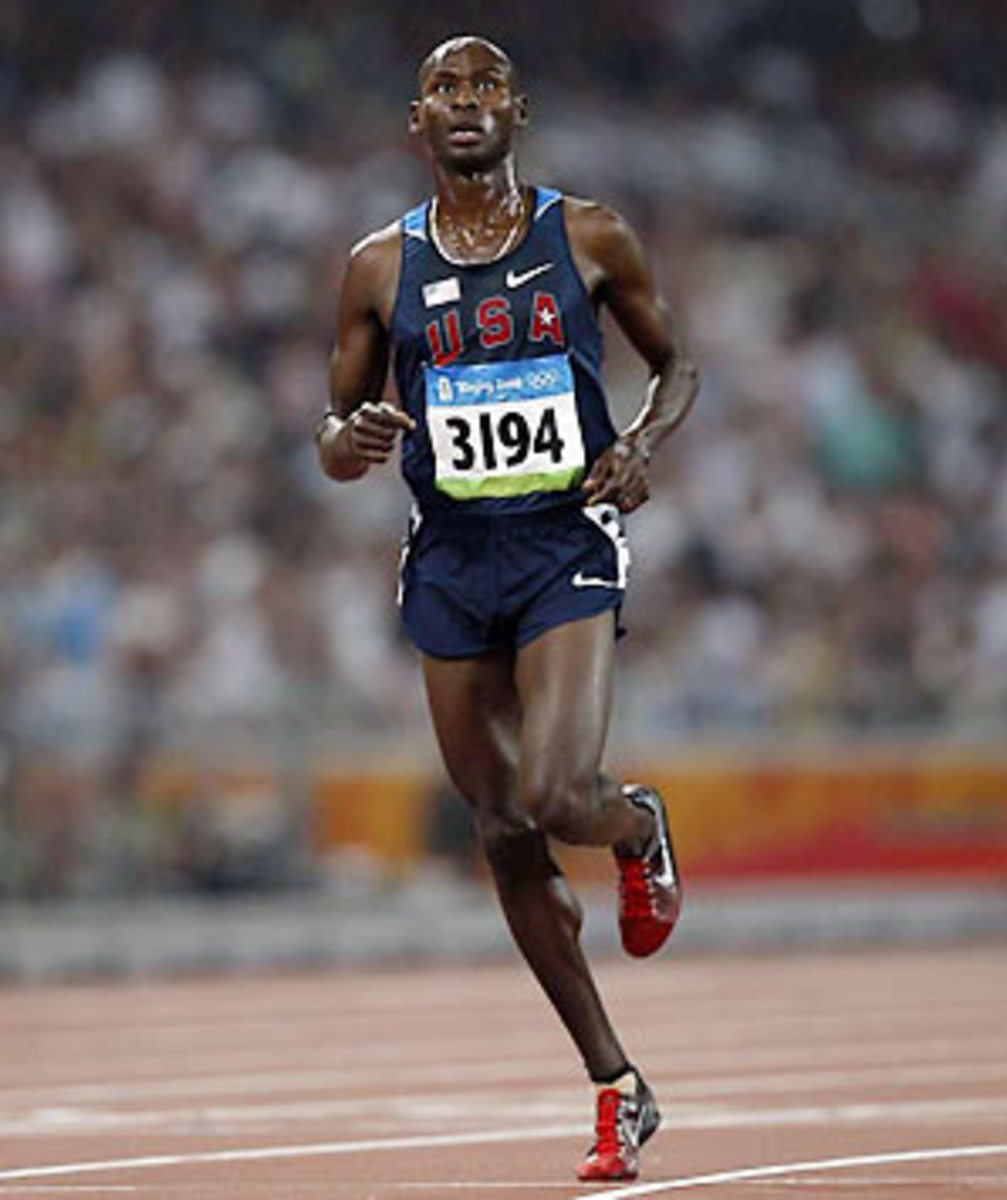Lagat's back to his old self; more respect for Bolt's incredible mark


BEIJING -- Bernard Lagat looked like his old self again on Wednesday night. Granted, it was only a semifinal heat of the 5,000 meters, but after failing to qualify earlier in the week for the final of the 1,500, a race he called his priority, Lagat needed a good showing in the 5,000 semis -- maybe to boost his confidence, maybe to regain his form.
The defending world champ in both races had the fastest time in his 5,000-meter semifinal Wednesday, finishing in 13:39.70. Ethiopia's Kenenisa Bekele, the man most expect to win the race, came in with the third-fastest time, 13:40.13.
"I wanted to run hard and make it to the finals." Lagat said. "I wasn't going out there to win, but I thought when I was leading, Why not just go out and win it?"
More important, Lagat needed some finishing speed to pull ahead in his semi, which, like most non-finals, had its frequent shifts of pace. With only four runners guaranteed to advance in each of the three semis, seven runners had a chance to get through as the runners went through the last half lap. Lagat nudged his way past Bekele, James C'Kurui of Qatar and Thomas Longowisa of Kenya to grab the top spot.
It was a far cry from his disappointing showing in the 1,500, in which Lagat, who always prefers tactical races anyway, simply couldn't close on the runners who had more left at the end.
After that race, Lagat was left to explain, "I tried to follow pace. I gave it my all." The Kenyan native had won a silver and a bronze in the 15 at the last two Olympics, and it appeared, at the time, that we were watching a champion fade right in front of us. With his increased turnover and successful kick, Lagat looks like a contender again.
The world's oldest living sprint champ is 85, and Harrison Dillard's powers of prognostication are as good as ever. Before the men's 200, Dillard was speaking to Herb Douglas, Jesse Owens' roommate, about Usain Bolt's bid to double in the 200 after winning the 100 earlier in the week.
"He's going 19.29," Dillard said from the Olympic stadium. "The record is definitely going down."
First of all, Dillard was in a position to know. He was favored to win the 100 meters at the London Games in 1948, but failed to qualify for the final. He then ran the 110-meter hurdles, which he was not expected to win, and captured gold in a surprise. Four years later, Dillard got his gold in the 100. He also won a gold medal on the 4x100-meter relay at both Games.
At 86, Douglas was in a position to know, too. He was a bronze medalist in the long jump in London and was a sprinter during his career, too. After his friend's death, Douglas spearheaded the Jesse Owens Award that, for 25 years, recognized the world's greatest athlete.
These are the gentlemen of the sport who laid foundations for people like Bolt.
"There has never been anyone that tall with that kind of turnover," Dillard said. "It's like Jesse," Douglas added, shifting his hands up and down, because these days they move more quickly than the legs. "Up and down so fast. No wasted motion. All of his energy goes to the right place."
Still, the interloper noted, the 19.32 Michael Johnson ran in Atlanta in 1996 was one of those off-the-charts marks that was going to stand for decades, right? The second-fastest time in history, after all, was the 19.62 Tyson Gay ran last year.
"Look," Dillard said. "If, and I say if, he runs through the tape, he's going to break that record. He has a look, but you can't be ready all the time. You can't be in shape, have people to push you each time you run. You can't assume that look will come back on demand. You have to take it when you have it. He can't afford to play."
So what would a coach in Dillard's day have done to a sprinter who showboated at the end of an Olympic final that way Bolt did in the 100? "Would have kicked his ass," Dillard said. "Make the young man apologize or give that medal back. But that's you kids today. It's a sign of respect to run through and respect the race. It's a show, but the show isn't more important than the race."
Given Bolt's vigorous showboat-free dash to the line and a 19.30, a mere hundredth off Dillard's prediction, the former champ must be glad to see the current champ allow the race to be the show.
